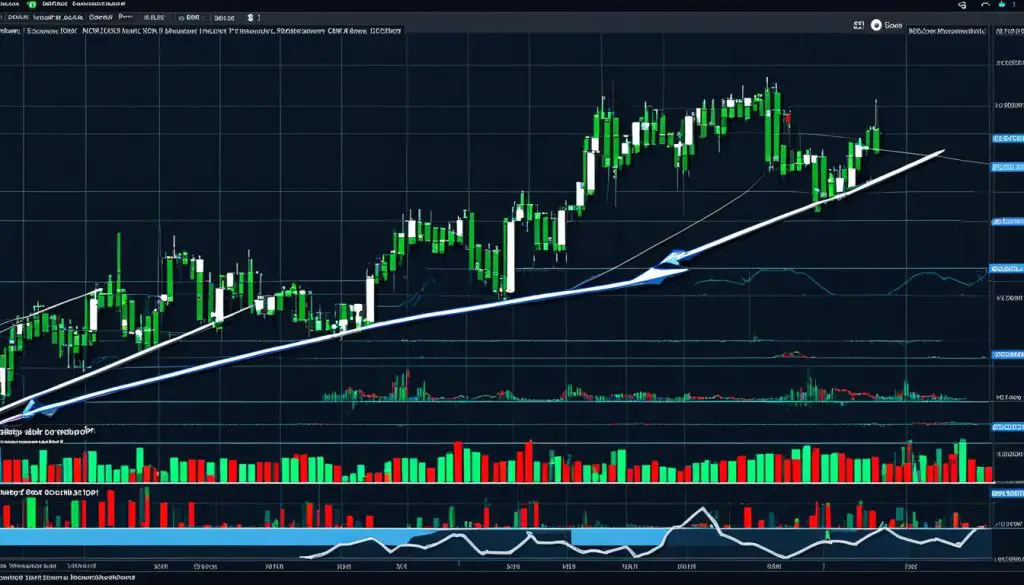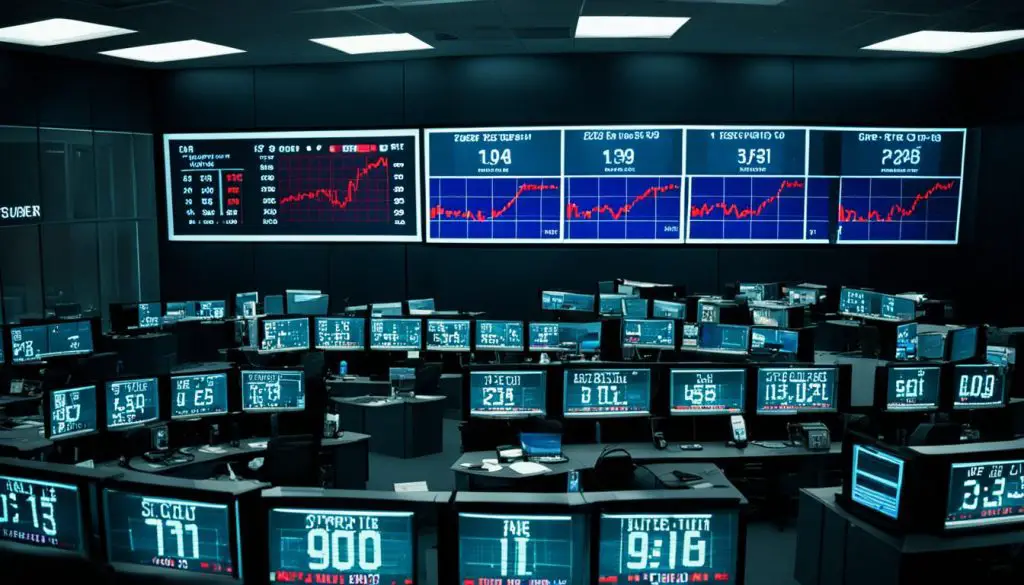As the financial world grows increasingly interconnected, many in Bangladesh are turning their attention to the prospects of forex trading, prompting questions regarding its legality within the country. With forex trading legality in Bangladesh being a subject of much debate, it is essential to understand the stance of local authorities and the regulations governing this activity. Indeed, Bangladesh forex trading regulations indicate that engaging in forex transactions is permissible through authorized channels, under the vigilant oversight of the Bangladesh Bank.
The market in question is navigable for those who abide by the legislative framework, particularly the Foreign Exchange Regulation Act of 1947. This Act specifies that currency transactions must be routed through officially sanctioned banks and dealers, ensuring that the conversion of the national currency, the Taka, complies with legal prerequisites. Consequently, is forex trading legal in Bangladesh? The answer lies in adherence to guidelines that outline a structured and monitored trading environment.
Understanding the Forex Market in Bangladesh
The dynamism of the Forex market in Bangladesh presents a multitude of opportunities for traders, encompassing a variety of currencies and cryptocurrencies. With proper adherence to forex market regulations in Bangladesh, participants can explore a spectrum of trading strategies within legal bounds.
The Forex Trading Landscape in Bangladesh
Amidst the soaring number of currency and cryptocurrency pairings exceeding 100 and 34 respectively, forex trading in Bangladesh flourishes under specific conditions. The availability of platforms offering advanced features such as copy and algorithmic trading have further expanded the horizon for avid traders, complemented by a wealth of educational resources.
Regulatory Bodies Governing Forex in Bangladesh
Maintaining the integrity of foreign exchange trading legality in Bangladesh, the Bangladesh Bank stands as the prime authority regulating forex activities. These regulations ensure compliance with the Foreign Exchange Regulation Act of 1947. A snapshot of the financial health in October 2020 reveals the nation’s Foreign Exchange Reserves amassing assets worth $40,816.30 million, underpinning a stable economic substrate.
Local vs International Forex Brokers
When it comes to Bangladesh forex trading regulations, domestic brokers are the primary gateway for local citizens keen on entering the forex domain. In contrast, international brokers offer a more streamlined process for foreign traders, often requiring merely identification and proof of residence.
| Requirement | Local Brokers | International Brokers |
|---|---|---|
| Identification | Government-Issued ID | Passport/ID |
| Residence Proof | Bank Statement from Local Bank | Utility Bill/Residence Certificate |
| Earnings Proof | Income Statements/Tax Returns | N/A |
| Account Features | Local foreign currency bank account | Varied account types with different currencies |
In essence, the contrasting requirements delineate the choices available to Bangladeshi traders, reflecting the forex trading guidelines in Bangladesh that hinge on both local and global practices amid an ever-evolving financial landscape.
Regulations and Restrictions Affecting Forex Trading
The Foreign Exchange Regulation Act of 1947 and subsequent legal frameworks set forth a series of forex trading restrictions in Bangladesh intended to monitor and control the activity within the financial market. These laws aim to safeguard the market’s legality and integrity, while also ensuring the safety of individual traders engaging in forex. To effectively navigate the forex market in Bangladesh, being fully aware of the forex trading laws in Bangladesh is essential for compliance and successful trading.
Strict compliance is required as only licensed financial institutions have the authorization to carry out forex transactions. Direct foreign exchange trading by individuals, on the ground, is explicitly prohibited. The table below lays out the regulatory stipulations pertaining to forex trading in Bangladesh, offering a clear view of the entities permitted to execute forex trades and the conditions under which they operate.
| Regulatory Requirement | Description | Implications |
|---|---|---|
| Authorized Entities | Only banks and brokers licensed by the Bangladesh Bank | Limited access to market for individuals; mandatory to go through licensed bodies |
| Transaction Purpose | Must be for approved activities under Foreign Exchange Regulation Act | Non-commercial transactions may not be allowed |
| KYC Documentation | Proof of identity, residence, and eligibility | In-depth personal data submission to authorized brokers |
| Reporting and Compliance | Regular reporting of forex transactions to Bangladesh Bank | Banks and brokers are held accountable for all trades executed |
Understanding and following the forex trading laws in Bangladesh is crucial for any individual or entity looking to get involved in the forex market. The regulations and restrictions aim to prevent financial fraud, market manipulation, and illegal monetary transfers, in turn contributing to a more stable and trustworthy trading environment.
Is Forex Trading Legal in Bangladesh?
The question of the legality of forex trading in Bangladesh often generates confusion amongst prospective traders. It is important to dispel myths and present the factual landscape of forex trading within the confines of Bangladeshi law.
Clarifying the Legality of Forex Trade in the Region
Contrary to widespread belief, forex trading in Bangladesh is not outright banned but is subject to conditional legality. The regulations governing the operation of forex within the country are overseen by authoritative bodies, with the Bangladesh Bank at the forefront of setting the regulatory framework.
Trading Through Licensed Financial Institutes
Adherence to the regulatory framework is non-negotiable, and thus forex trading in Bangladesh can be conducted exclusively through licensed financial institutions in Bangladesh. This stipulation ensures that all trading activities are carried out with integrity and under strict supervision, aligning with the forex market regulations in Bangladesh.
The following table outlines key guidelines set by the Bangladesh Bank concerning forex trading transactions:
| Guideline | Description | Impact |
|---|---|---|
| Licensing | All Forex trades must be executed through licensed banks or financial institutions. | Ensures legal and monitored trading activities. |
| Leverage and Margin Trading | Usage of leverage and margin trading is prohibited in the forex market. | Controls risk and prevents speculative trading practices. |
| Adherence to Laws | Traders must comply with the Foreign Exchange Regulation Act of 1947 and related forex trading laws in Bangladesh. | Maintains the legality of trading, safeguarding trader investments. |
Impact of Regulatory Changes on Forex Trade
As the economic landscape evolves, so do the forex trading guidelines in Bangladesh. Changes, whether they involve tightening or relaxing of existing rules, can have a profound effect on how forex trading is conducted. Being cognizant of the latest regulatory amendments is crucial for traders aiming to participate in the forex market within the legal boundaries of the country.
Ultimately, while there are restrictions in place, the avenues for legally entering the forex market are clear and accessible to those who wish to comply with the Bangladesh forex trading legality protocols. Thus, while forex trading in Bangladesh is indeed regulated, it remains a viable investment option for those adhering to the legal stipulations.
Bangladesh Forex Trading Regulations
The investment landscape of forex trading in Bangladesh operates within a framework outlined by rigorous Bangladesh forex trading regulations. It is critical for investors and traders to adhere to the forex trading guidelines in Bangladesh, established primarily to safeguard participants and enhance market stability. These regulations encapsulate a stringent process for brokers to obtain licenses, along with specified capital requirements and comprehensive operational standards. This regimented structure assures that all forex trading activities are executed legally and ethically within the borders of the country.
- Requirement for brokers to obtain a valid license from the Bangladesh Bank
- Prescribed capital requirements to ensure financial stability of forex trading firms
- Mandatory operational standards which foster transparent and fair trading
Comprehensive oversight by the Bangladesh Bank entails a detailed scrutiny and authorization of potential forex trading entities. This vetting process encompasses various criteria that firms must meet to secure a seal of approval from the nation’s financial watchdog.
| Criteria for Approval | Requirements |
|---|---|
| Licensure | Securing a license from the Bangladesh Bank, affirming legitimacy to operate within the country. |
| Capital Adequacy | Ensuring sufficient capital to withstand market volatility and protect client assets. |
| Operational Transparency | Mandatory reporting and disclosure of trading operations, to foster transparency. |
| Risk Management | Implementing systems to identify, assess, and mitigate financial risks. |
| Client Protection | Employing measures to secure client funds, including segregated accounts. |
Conclusion
In sum, the state of forex trading in Bangladesh is defined by rigorous oversight and a clear legal structure. It remains a permitted financial activity when executed within the bounds set by the Bangladesh Bank and other pertinent financial authorities. This regulatory presence not only clarifies the question, “Is forex trading legal in Bangladesh?”, but it also delineates the framework for compliant forex trading in Bangladesh. The foresight of the regulatory bodies, which mandates adherence to legal guidelines, appears to pave the way for a future where forex trading can evolve safely under a managed system.
Assessing the Legality and Future of Forex Trading in Bangladesh
The legality of forex trading in Bangladesh 2024 continues to uphold a positive trajectory for traders who are compliant with current legislative and regulatory criteria. Respecting the established restrictions and guidelines is paramount for safeguarding the marketplace’s integrity. Observing these legal parameters allows traders to legally partake in forex trading activities and contributes to a sustainable trading environment where integrity and fairness are prioritised.
Navigating Compliance and Safe Trading Practices
In order to engage in forex trading legally in Bangladesh, aspiring traders are compelled to meticulously follow all laws and regulations applicable to forex activities. Recognizing the necessity of safe forex trading practices is crucial. It involves being well-versed in the regulatory landscape, applying risk minimization strategies, and making informed trading decisions—each serving as a pillar for achieving longevity and success in the forex market. Vigilance in compliance and dedication to safe trading protocols hence become the bedrock for continued legal and prosperous forex trading within the nation.
FAQ
Yes, forex trading is legal in Bangladesh, but it is strictly regulated. Traders must adhere to guidelines and rules set by the Bangladesh Bank and conduct trading through licensed banks or financial institutions.
Forex trading in Bangladesh is regulated under the Foreign Exchange Regulation Act of 1947 and overseen by the Bangladesh Bank. Regulations require trades to go through authorized entities and maintain specific operational standards to promote market safety and integrity.
Key restrictions include the requirement that forex trading can only be conducted through licensed financial institutions, prohibition of direct foreign exchange transactions by individuals, and bans on the utilization of leverage and margin trading.
Bangladeshi citizens need to provide a government-issued ID, a bank statement from a local bank, proof of earnings, and other documentation as required by domestic brokers to open a trading account. International traders typically need to provide identification and proof of residence.
A common misconception is that forex trading is outright banned in Bangladesh, which is not true. It is operational under specific conditions and within a regulated framework.






